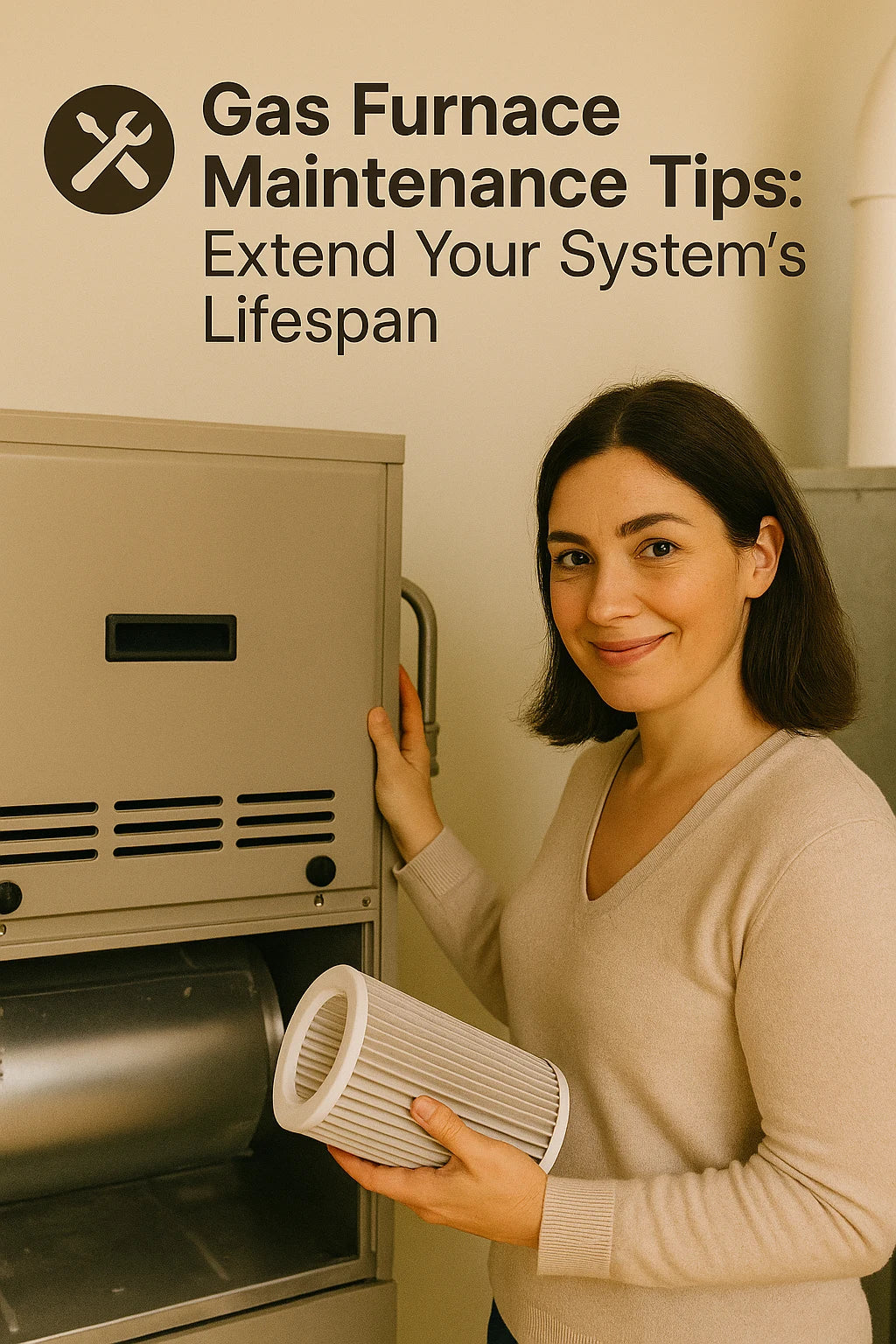🔍 Introduction: Why Gas Furnace Maintenance Matters
Routine maintenance is essential to keep your gas furnace running safely, efficiently, and reliably throughout its lifespan. A well-maintained furnace can last 15–20 years, while neglecting maintenance often leads to premature breakdowns and higher energy bills.
This guide will help you:
-
Understand the benefits of regular maintenance
-
Learn simple DIY maintenance tasks
-
Know when to call a professional
-
Recognize early warning signs of furnace problems
♻️ Benefits of Regular Maintenance
✅ Improved energy efficiency
✅ Lower energy bills
✅ Extended system lifespan
✅ Better indoor air quality
✅ Reduced risk of breakdowns
✅ Safer operation by reducing carbon monoxide risks
Learn more about why maintenance matters at Energy.gov.
🧹 DIY Gas Furnace Maintenance Checklist
While annual professional inspections are essential, homeowners can handle basic maintenance, including:
✅ Replace or clean air filters every 1–3 months during the heating season.
✅ Check vents and registers to ensure they are open and unobstructed.
✅ Keep the area around your furnace clean and clear for proper airflow.
✅ Inspect your thermostat to ensure it functions correctly.
✅ Check the furnace flame color (should be blue, not yellow) to monitor combustion quality.
✅ Listen for unusual noises that could indicate issues with the blower or motor.
🛠️ Professional Maintenance Tasks
A professional HVAC technician should perform:
-
Inspection of heat exchangers for cracks or leaks
-
Checking gas pressure and burner combustion
-
Testing safety controls and the ignition system
-
Cleaning the blower assembly and motor
-
Checking flue pipes and venting for blockages
-
Ensuring carbon monoxide levels are within safe limits
Schedule annual maintenance before the heating season for best results.
For a full maintenance guide, visit HVAC.com.
⚠️ Warning Signs Your Furnace Needs Attention
If you notice any of these signs, contact a professional:
-
Unusual noises (banging, rattling, or squealing)
-
Persistent bad odors or a gas smell
-
Furnace cycles on and off frequently (short cycling)
-
Uneven heating throughout your home
-
Yellow pilot light instead of blue
-
An unexplained increase in energy bills
🔄 Importance of Filter Changes
Clogged filters restrict airflow, forcing your furnace to work harder and reducing efficiency. Changing filters regularly:
-
Extends your furnace’s lifespan
-
Maintains airflow
-
Improves indoor air quality
-
Reduces energy consumption
🏡 Keeping Your Home Safe
Gas furnaces produce carbon monoxide (CO) during operation. To ensure safety:
✅ Install CO detectors near sleeping areas.
✅ Test CO detectors monthly.
✅ Never block furnace intake or exhaust vents.
✅ Schedule professional inspections annually.
💡 Conclusion: Protect Your Furnace Investment
Regular gas furnace maintenance is a small investment that pays off by:
✅ Lowering utility costs
✅ Preventing breakdowns
✅ Extending the system’s lifespan
✅ Keeping your family safe
👉 Next Step: Ready to upgrade or replace your system? Explore high-efficiency gas furnaces at The Furnace Outlet and pair your purchase with a maintenance plan to protect your investment.
In the next article we will know more about: Gas Furnace vs. Heat Pump: Which Heating System Is Right for You?







